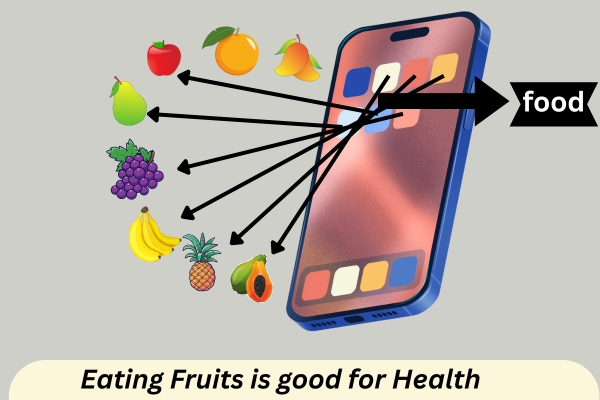
The United States has the highest rate of heart disease in the world.Heart disease remains the leading cause of death in the United States. 48% of the world’s population suffers from heart disease. There are many reasons why Americans suffer from heart disease – among them I have given the following main reasons –
1.Luxurious life
Table of Contents
Most people in the United States live a luxurious life. They spend hours and hours sitting on chairs or soft sofas, and in cars. The rise of technology and desk-based work has reduced daily physical activity. Lack of exercise weakens the heart muscle, increases blood pressure, and contributes to obesity – a major risk factor for heart disease. Especially men, women, and adolescents living in cities rely on cars, discouraging walking and cycling.
2. Disobeying elders:
Most teenagers in America are very damaged and suffer from heart disease due to not following the orders of an elder or a demonstrator (parents), this is a serious and fundamental issue. (To understand this section, whoever has the knowledge will explain it in the way he understands).
Reason. That is why American people suffer from a lot of depression, their patience and endurance are very low, that is why they suffer from heart disease.
3.Unhealthy diet:
Unhealthy food is the standard American diet, which is often called the “Western diet”. Processed foods, flour foods, saturated fats, sugars and sodium are high. Fast food, sugary drinks are a major part of the main diet for many. These foods increase cholesterol levels. Cause inflammation and promote obesity. All of which stress the cardiovascular system. Limited access to fresh, affordable produce in some communities exacerbates the problem.

4. Obesity Epidemic:
The obesity epidemic affects more than 40% of American adults, and obesity is a direct contributor to heart disease. Excess body fat, especially around the belly, increases the risk of high blood pressure, diabetes, and high cholesterol—the main drivers of heart disease. Cultural factors such as large portion sizes and constant food marketing make weight management challenging.
5. Stress and Human Health:
The United States is under a lot of long-term stress due to changing work schedules, financial pressures, and social challenges. Stress hormones like cortisol increase blood pressure and heart disease rates. Over time, they damage blood vessels. Mental health problems, such as depression and anxiety, are also linked to unhealthy coping mechanisms (especially in pregnant women), such as overeating or smoking, which further damage the heart.

6. Smoking and Vaping:
Although smoking rates have declined in the United States, tobacco use remains a significant problem, especially in some regions. Cigarettes and vaping products contain chemicals that damage blood vessels and reduce oxygen flow to the heart. Exposure to secondhand smoke from vehicles poses a significant risk, especially for pregnant women, young children, and smokers.
7 .Diabetes:
The increased risk of diabetes, which damages blood vessels and is closely linked to obesity and a poor diet. Diabetes damages blood vessels and nerves and doubles the risk of heart disease. The rise in childhood obesity and the early onset of diabetes have helped set the stage for heart disease in younger populations.
8 .Healthcare Disparities:
Access to healthcare varies widely across the United States, with many Americans. Especially in rural or under served areas, where there is a lack of regular medical checkups or preventive care,undiagnosed or untreated conditions such as high cholesterol can quietly worsen over time. leading to heart attacks or strokes. High health care costs also prevent people from seeking timely treatment.
9. Aging Population:
Heart attacks have increased as the U.S. population ages. Aging naturally weakens the heart and blood vessels, and adults are more likely to have risk factors like high blood pressure or plaque buildup. The growing number of older adults contributes to the overall prevalence of heart disease.
10.Genetic and racial factors:
Certain ethnic groups, including African Americans, Hispanic Americans, and Native Americans, face a higher risk of heart disease due to genetic predisposition and socioeconomic challenges. For example, – African Americans have higher rates of high blood pressure, which is a leading cause of heart disease. Family history plays a role, as genetics can affect cholesterol levels and heart function.
11. Alcohol and substance abuse:
Excessive alcohol consumption and drug use, including opioids and stimulants, put strain on the heart. Heavy drinking raises blood pressure, while drugs like cocaine can trigger heart attacks, even in young adults. The opioid crisis and rising substance abuse are adding to the burden of heart-related illnesses.
Heart disease treatment
Fighting heart disease requires a combination of lifestyle changes, medical interventions, and systemic improvements. Here are practical, people-centered remedies to reduce risk and improve heart health.
a) Eat a heart-healthy diet.

Eat more plants, or fill your plate with vegetables, fruits, whole grains, and legumes. These foods are rich in fiber, antioxidants, and nutrients that lower cholesterol and inflammation.
Choose healthy fats like olive oil, avocado and nuts for unsaturated fats, swap saturated fats (found in red meat and butter). Reduce salt intake to control blood pressure with low sodium.
Reduce sugary drinks, processed snacks and fast food. Eat nutritious foods i.e. home cooked meals. Avoid stale food. Eat fresh foods like green leafy vegetables (low in salt).
b) Increase physical activity:- Regular exercise strengthens the heart, lowers blood pressure and keeps cholesterol levels in check. Walking, cycling, swimming, using the stairs for 150 minutes every week is very beneficial for the body.
c) Maintain a healthy weight:- Losing 5-10% of your body weight can reduce the risk of heart disease. We should give up some habits such as eating less, avoiding late night snacking and staying hydrated. Working with a dietitian or a weight loss specialist can provide support and guidance.
d) Stress and mental health management Practice stress reduction techniques – such as: – Meditation with devotion, guided sessions on apps or online videos can be followed. Try deep breathing exercises, at least 5-7 minutes sessions to calm the nervous system. Social connections such as spending time with loved ones or being involved in an organization or group. Seeking therapy Counseling can help relieve chronic stress or depression.
Employers and community centers can offer free or low-cost mental health resources. Women need to drink one glass of water per day and men 2 to 3 liters.
Why is heart disease more common in the United States and what is its cure?
Improve sleep quality
Sleep for 7-8 hours every night. Create a sleep routine. Turn off the lights and adjust the room temperature before going to bed. Keep your mobile phone away from your bed and seek treatment for sleep disorders such as sleep apps, which have been linked to heart disease.
Regular health check-ups and medical care
Early detection of heart disease risk factors can save lives. Consult your doctor if you are taking prescribed medications.
Know the warning signs of a heart attack (chest pain, shortness of breath, dizziness) and seek help immediately.
Public health and policy change
Changing yourself is very important, but sweeping changes can make a difference in people’s minds.
The government should implement policies that promote healthy food options, such as reducing trans fats and sugar in processed foods.
The government should encourage the general public to be more active in the workplace.
The government should monitor this issue to ensure that people receive more preventive care.

Final Thoughts
A Heart-Healthy Future is Possible
Heart disease is the leading killer of Americans.
By understanding the root causes – poor diet, inactivity, stress and lack of preventive care – we can take meaningful steps to protect our hearts.
Small, consistent changes in diet, exercise, stress management and medical care can make a significant difference in heart health. Whether you are at risk or just want to maintain a strong heart, the power to prevent heart disease is largely in your hands.

Let’s keep our hands strong and firm and stand by the sick. It is our duty to visit and comfort someone when they are sick. Taking care of them will send a good message to our society and the sick person will get well soon and we believe that a very beautiful and happy message will reach the next generation. Stay well, stay healthy and try to keep others healthy.

